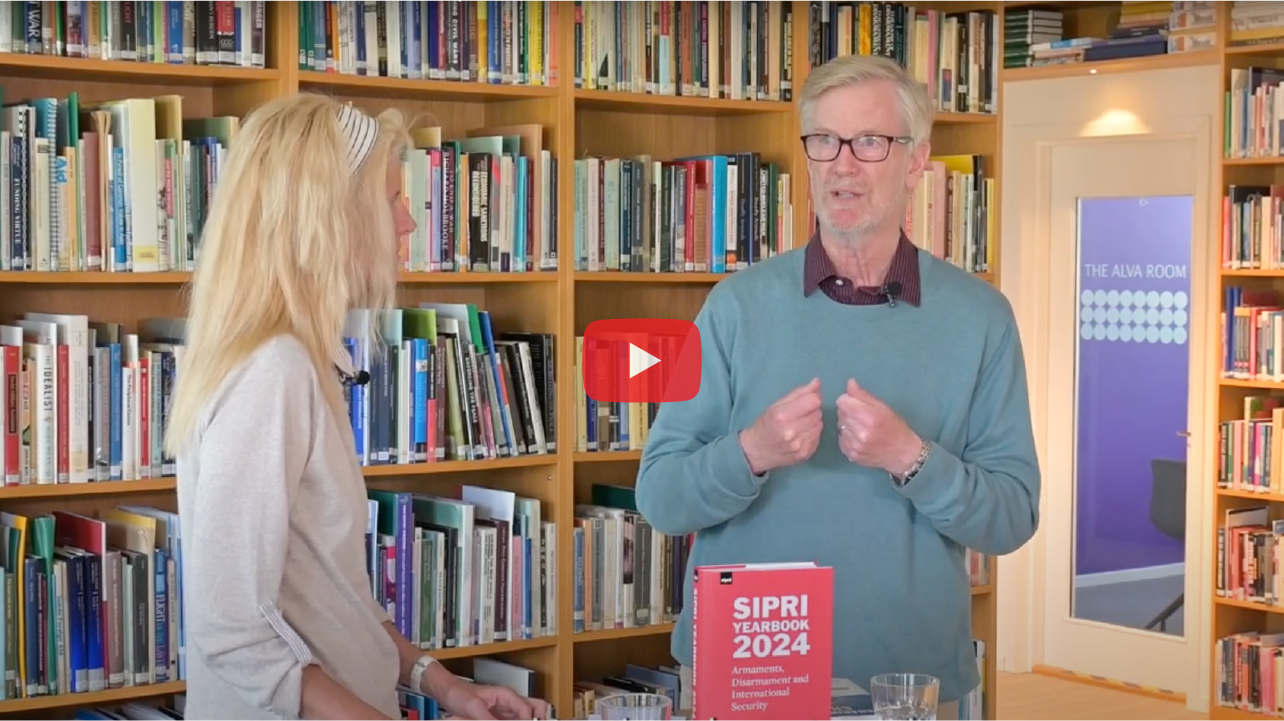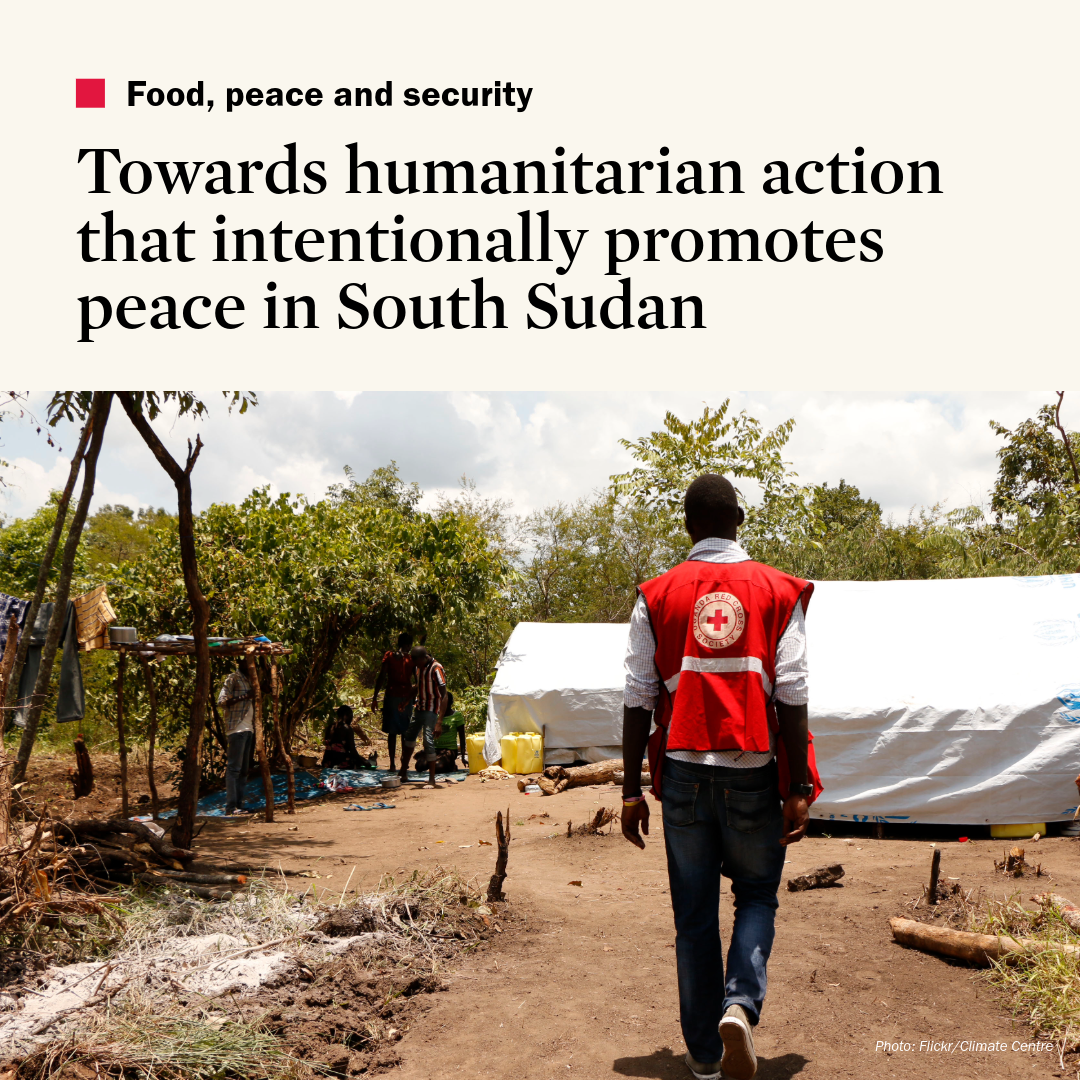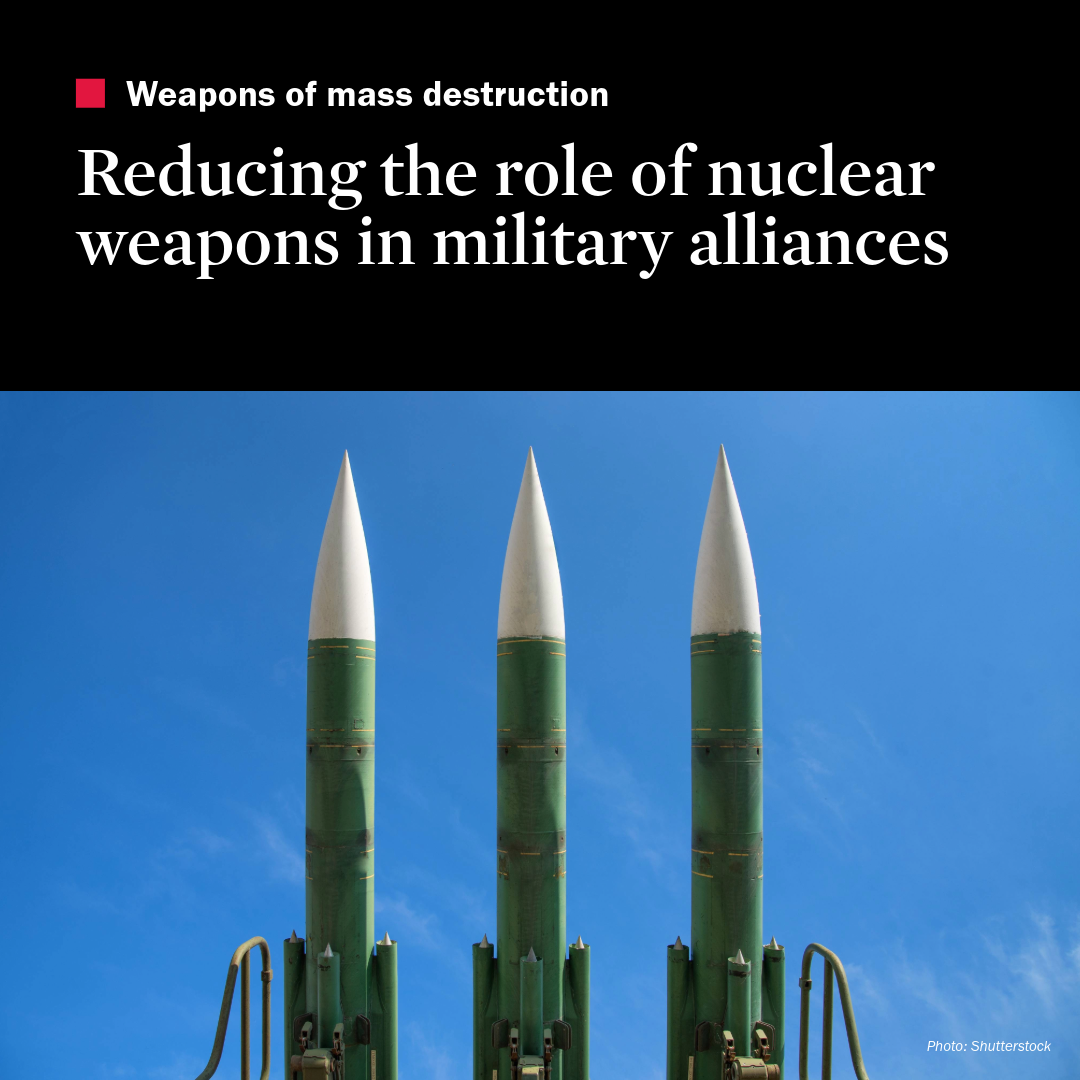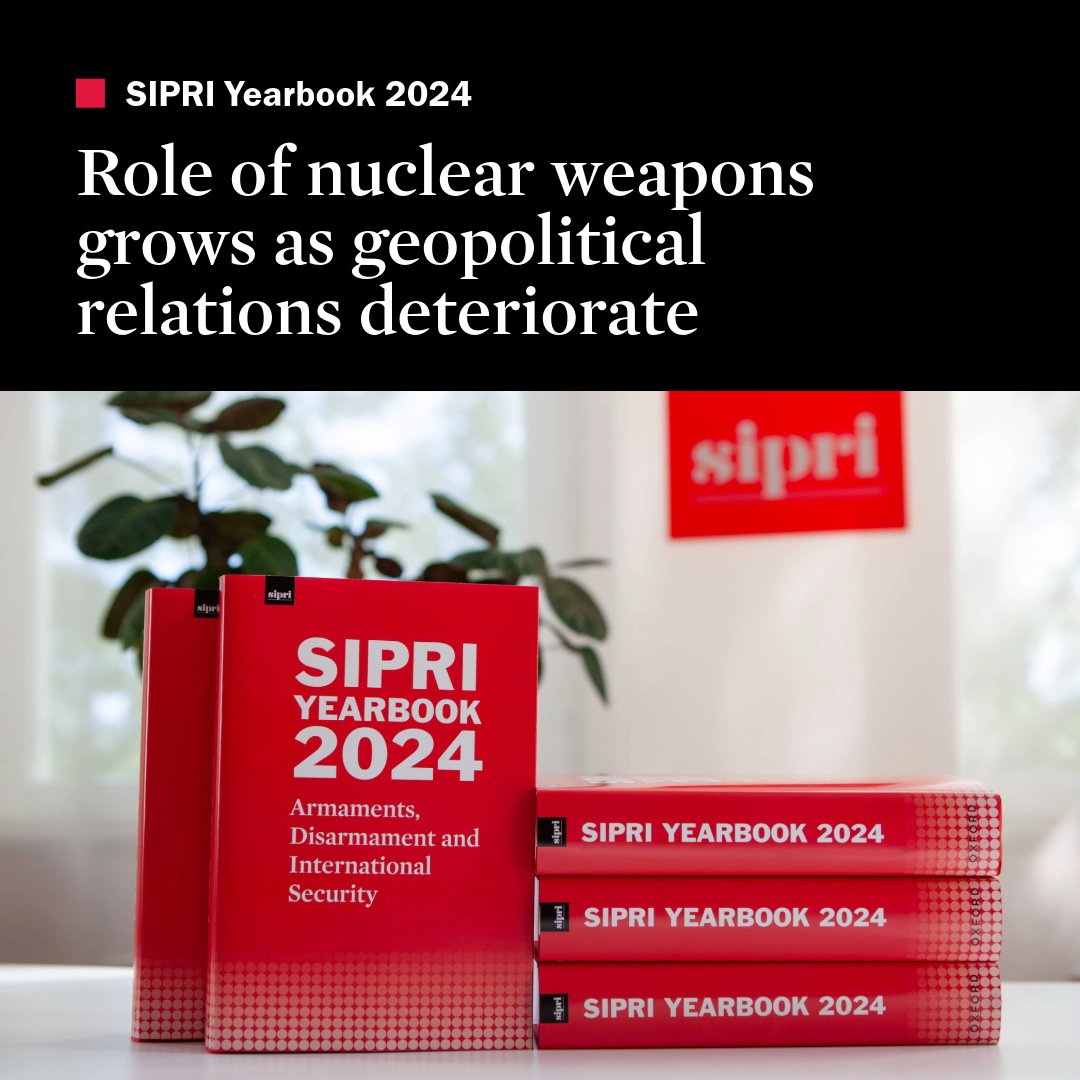|
| NEWS |
 |
| New SIPRI data on world nuclear forces and SIPRI Yearbook out now |
|
This month, SIPRI launched SIPRI Yearbook 2024. Key findings of the Yearbook are that the number and types of nuclear weapons in development have increased as states deepen their reliance on nuclear deterrence. Of the total global inventory of an estimated 12 121 warheads in January 2024, about 9585 were in military stockpiles for potential use. An estimated 3904 of those warheads were deployed with missiles and aircraft—60 more than in January 2023—and the rest were in central storage. Around 2100 of the deployed warheads were kept in a state of high operational alert on ballistic missiles. Nearly all of these warheads belonged to Russia or the United States, but for the first time China is believed to have some warheads on high operational alert.
|
|
|
Read more | Download the sample chapter on world nuclear forces | Download the introductory chapter
|
|
|
 |
| Critical minerals and great power competition: Interactions and implications |
|
On 13 June, SIPRI ran a webinar on mineral resource competition. Speakers focused on the policies of China, the European Union (EU), Russia and the USA. As major powers ‘de-risk’ and even ‘de-couple’ their supply chains from putative adversaries, more needs to be understood about how competing pursuits of critical or strategic minerals security interact, and what implications this competition has for global-level imperatives of green transition, sustainable development and peaceful interstate relations.
|
|
|
Read more | Watch a recording of the webinar
|
|
|
 |
| New SIPRI research on peace operations presented in Brussels |
|
On 15 May, new SIPRI research on peace operations was presented to an audience of ambassadors to the Political and Security Committee in Brussels. Dr Jaïr van der Lijn, Director of the SIPRI Peace Operations and Conflict Management Programme, presented the research findings. The report provides a comprehensive assessment of three civilian EU Common Security and Defence Policy missions that have a Security Sector Reform focused mandate: EUPOL Afghanistan, EUCAP Sahel Mali and EUCAP Sahel Niger.
|
|
|
Read more | Read the report
|
|
|
 |
| Peace Points: World order, disorder and a habit of cooperation |
|
In this episode of Peace Points, SIPRI Director Dan Smith delves into the 2024 SIPRI Yearbook, reflecting on the pivotal developments in international stability and human security throughout 2023. Topics covered are major geopolitical shifts in 2023, progress and setbacks in human security, international conflicts and peace efforts, and opportunities for international cooperation.
|
|
|
Watch the Peace Points film | Explore SIPRI Yearbook 2024
|
|
|
|
| COMMENTARY |
 |
| Climate change and urban violence: A critical knowledge gap |
|
There are solid grounds for believing that climate change impacts could increase the risk of violence in affected cities and urban communities. Because the world is rapidly urbanizing, and climate change will increasingly affect cities, it is reasonable to assume that climate change could increase grievances among urban communities that in turn spill over into violence. However, academic research on how climate change contributes to urban violence is very limited. This blog post argues that more research is needed to understand how climate-related grievance mechanisms play out. Equipped with that understanding, addressing the effects of climate change can be used as an entry point for violence prevention in tomorrow’s cities.
|
|
Read the SIPRI WritePeace blog
|
|
|
 |
| NATO’s direct funding arrangements: Who decides and who pays? |
|
This topical backgrounder aims to shed more light on how the North Atlantic Treaty Organization (NATO) and its activities are directly funded. Debates on how to share the burden of paying for the military capabilities to maintain and strengthen NATO’s deterrence and defence posture nearly always focus on what individual member states spend on their own militaries. However, there are at least three major categories of shared direct costs. This backgrounder looks at the principles and sharing mechanisms for these direct funding arrangements, with a focus on transparency and accountability.
|
|
Read the SIPRI Topical Backgrounder
|
|
|
|
 |
| External outlets |
|
SIPRI experts were recently featured in these external outlets:
|
|
|
|
| UPCOMING EVENTS |
| |
| 26–30 August 2024 |
| 2024 Armament and Disarmament Summer School |
|
The summer school is focused at young and emerging professionals in the fields of disarmament, non-proliferation and arms control.
|
|
Read more
|
|
|
| RECENT EVENTS |
| |
| 11 June 2024 |
| SIPRI joins high-level event from the Stockholm Hub on Environment, Climate and Security |
|
Last month, the Stockholm Hub on Environment, Climate and Security held a high-level event on ‘Economic Competitiveness and Resilience in the Era of Climate Change’. The event brought together experts from diverse sectors for a dynamic dialogue on a subject that transcends borders but also lies at the core of Sweden’s resilience, economic competitiveness and stability.
|
|
Read more
|
|
| |
| 28–31 May 2024 |
| SIPRI delivers intensive online course on chemical and biological weapons |
|
On 28–31 May, SIPRI and the EU Non-Proliferation and Disarmament Consortium (EUNPDC) delivered an intensive online introductory course on chemical and biological weapons for graduate and postgraduate students. The four-day course covered topics such as the fundamentals of chemical and biological weapons and the current challenges posed by them. Students also discussed the role of EU institutions in addressing these challenges.
|
|
Read more
|
|
|
| STAFF NEWS |
Current vacancies:
- Director (Closing date: 31 October)
- Senior Researcher, Sahel and West Africa Programme (Closing date: 30 June)
|
|
Read more
|
|
|
|
| PUBLICATIONS |
 |
| Towards Humanitarian Action that Intentionally Promotes Peace in South Sudan |
|
Humanitarian action that promotes peace and addresses the causes of conflict is vital for food security and community resilience in South Sudan. In Upper Nile state, the South Sudan Red Cross (SSRC) has the potential to promote peaceful coexistence and social cohesion. However, any possible peace impact of the project is currently a positive side effect, rather than an intentional response to or consequence of openings for peacebuilding. This paper provides actionable recommendations that would strengthen the SSRC’s peacebuilding impact while upholding the fundamental principles of the Red Cross and Red Crescent movement.
|
|
Read the SIPRI Report
|
|
 |
| Reducing the Role of Nuclear Weapons in Military Alliances |
|
This paper examines the role of nuclear weapons in military alliances, focusing on the perspectives of the so-called umbrella states—allied states that do not have their own nuclear weapons but are part of the ‘extended nuclear deterrence arrangements’ of a nuclear-armed patron. Taking into account regional military balances and escalation risks related to nuclear deterrence, it challenges the perceived security benefits of forward-deployed non-strategic weapons, continued support for allied nuclear doctrines based on readiness for the first use of nuclear weapons, and the assumed inevitability of nuclear second strike that underlies the practices of nuclear assurance. The goal is to open discussion on the development of a more measured approach to deterrence that would allow for minimizing the role of nuclear weapons in military alliances.
|
|
Read the SIPRI Insights on Peace and Security
|
|
 |
| Arms Supplies to Ukraine: Does the European Arms Export Control System Need Revision? |
|
Since February 2022, EU member states have changed their approach to the support provided to Ukraine. From an initially cautious stance, they have moved towards the transfer of both light and heavy weapons and equipment through bilateral agreements or within the framework of the European Peace Facility. This paper analyses these trends and examines the performance of the current regime on arms exports, particularly in the case of jointly produced armaments and competing national approaches. It discusses the potential benefits and drawbacks of a truly EU-wide system of export controls and makes proposals on how to improve coordination among the EU member states.
|
|
Read the EUNPDC report
|
|
|
|
 |
| SIPRI Yearbook 2024 |
SIPRI Yearbook 2024 presents a combination of original data in areas such as world military expenditure, international arms transfers, arms production, nuclear forces, armed conflicts and multilateral peace operations, with state-of-the-art analysis of important aspects of arms control, peace and international security. In addition to its detailed coverage of nuclear arms control and non-proliferation issues, the latest edition of the SIPRI Yearbook includes:
- insight on developments in conventional arms control in 2023;
- regional overviews of armed conflicts and conflict management;
- in-depth data and discussion on military expenditure, international arms transfers and arms production; and
- comprehensive coverage of efforts to counter chemical and biological security threats.
|
|
Browse the contents page | Download the summary (PDF) | Download the sample chapter on world nuclear forces (PDF) | Download the introductory chapter (PDF) | Order SIPRI Yearbook 2024
|
|
|
| |
|
|
|
|